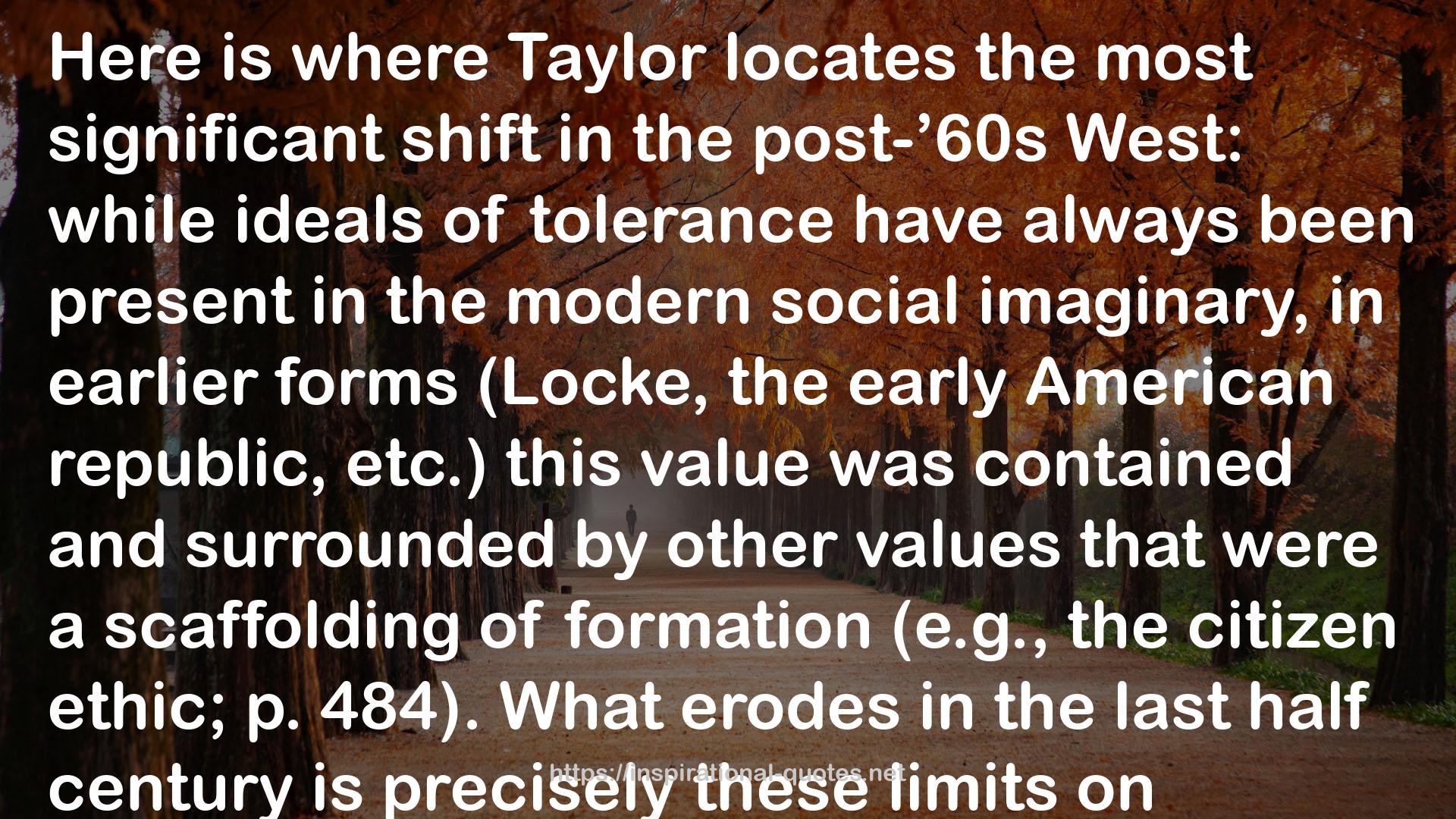" Here is where Taylor locates the most significant shift in the post-’60s West: while ideals of tolerance have always been present in the modern social imaginary, in earlier forms (Locke, the early American republic, etc.) this value was contained and surrounded by other values that were a scaffolding of formation (e.g., the citizen ethic; p. 484). What erodes in the last half century is precisely these limits on individual fulfillment (p. 485). The Place of the Sacred in Our Secular Age What is the “imagined place of the sacred” in a society governed by expressivist individualism (p. 486)? Taylor has already hinted that such a society seems to forge its own “festive” rendition of the sacred — “moments of fusion in a common action/feeling, which both wrench us out of the everyday, and seem to put us in touch with something exceptional, beyond ourselves. "
― James K.A. Smith , How (Not) to Be Secular: Reading Charles Taylor
